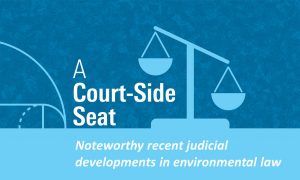How To Evict a Tenant If Their Deposit Isn’t Protected
Landlords who have yet to protect their tenant’s deposit may find themselves in a challenging situation when attempting to evict a tenant. Protecting a tenant’s deposit is a legal requirement in England and Wales, and failing to do so can significantly complicate the eviction process and expose landlords to potential fines.
In this article, we’ll explore the implications of having an unprotected deposit and provide detailed guidance on how landlords can navigate this complex issue, ensuring compliance with legal standards and avoiding further complications. For further guidance, contact our expert property litigaiton team at Helix Law today.
What Is Tenancy Deposit Protection?
Tenancy Deposit Protection (TDP) is a legal requirement for landlords in England and Wales who enter into an assured shorthold tenancy agreement on or after April 6, 2007 to safeguard the tenant’s deposit in one of three government-approved schemes within 30 days of receiving it:
- Deposit Protection Service
- MyDeposits or
- Tenancy Deposit Scheme
This scheme ensures that tenant’s funds are held securely until the tenancy concludes.
When Did Tenancy Deposits Come In & Why?
Tenancy deposit protection scheme requirements were introduced on 6th April 2007 under the Housing Act 2004 to improve standards within the private rental market.
The core aims of this legislation are to:
- ensure tenants who comply with their tenancy agreements are entitled to a full refund of their deposit. The aim was to prevent landlords from unjustly withholding tenants’ funds and money, with penalties of up to 3x the deposit value for non-compliance.
- ensure landlords can use the deposits to address property damages or unpaid rent.
- give access to a dispute resolution service to resolve any disagreements concerning the return of the deposit amount.
Initially, the scheme required landlords to protect deposits within 14 days, but this time frame was increased to 30 days starting from 6th April 2012.
Why Is It an Issue If a Tenant’s Deposit is Unprotected?
Failing to protect a tenant’s deposit can lead to several significant issues for landlords:
- If a tenant’s funds are not protected, they may take legal action against the landlord, which could result in the landlord being fined and potentially having to cover the tenant’s court costs if the case is lost.
- Landlords may lose the ability to use a Section 21 eviction notice, complicating the process of regaining possession of their property.
- If a landlord’s Section 8 notice is challenged in court it can be possible for the tenant to set off fines and penalties preventing the landlord from being able to evict.
- Failing to comply with the legal requirement to protect a tenant’s funds can negatively impact a landlord’s reputation in the rental market and in certain instances can lead to a refusal to grant licenses, for example in relation to HMO’s.
Ensuring that tenants’ funds are protected complies with legal requirements and safeguards both the landlord’s and tenants’ interests, making the end-of-tenancy process smoother and more predictable.
What Can a Tenant Claim if Their Deposit is Unprotected?
If you do not protect a tenant’s funds in a government-approved scheme within 30 days, tenants can take legal action against you under sections 213 and 214 of the Housing Act 2004. They can issue a claim in the county court. The county court can order the following against you:
- The court fee of £308 if the tenant wins the case.
- To repay the deposit to the tenant or pay it into a TDP scheme’s bank account within 14 days.
- The court may also order the landlord to pay you up to 3 times the deposit amount as compensation.
- The amounts in total can be increased- for example if the tenancy was renewed that might be argued as another additional breach, or alternatively where the tenancy has become a periodic tenancy.
If you are a landlord and a tenant has commenced legal proceedings against you, or if you have sought to issue a possession claim but are concerned at the most appropriate and necessary next steps, contact our expert property litigation team at Helix Law and we will be happy to confirm our advice on your situation.
How Do I Ensure I am Compliant with Tenancy Deposit Legislation?
If you’re a landlord, staying on top of Tenancy Deposit Legislation is important to avoid legal headaches. Here is how you can make sure you are fully compliant.
Select a Protection Scheme
Use a government-approved tenancy deposit protection scheme and securely secure the tenant’s money into the chosen scheme within 30 days of receiving it.
Provide tenants with the Required Information
Furnish tenants with all the prescribed information related to deposit protection. This includes a how to rent guide and:
- the address of the rented property
- how much deposit you have paid and how it is protected
- the name and contact details of the scheme and its dispute resolution service
- their (or the letting agencies) name and contact details
- the name and contact details of any third party that’s paid the deposit
- why they would keep some or all of the deposit
- what to do if you cannot get hold of the landlord at the end of the tenancy
- what to do if there’s a dispute over the protection of funds
You should also maintain thorough records of all transactions and communications regarding the tenant’s funds. You must also notify tenants of any changes to the deposit terms or scheme details, especially at tenancy renewal or when switching schemes, ensuring each deposit is protected if dealing with multiple tenants.
By adhering to these practices, landlords can ensure legal compliance and foster transparent and trusting relationships with tenants.
Can a Landlord Evict a Tenant If Their Deposit Is Unprotected?
Evicting a tenant when their funds are not protected poses challenges but remains possible under certain conditions. Landlords must understand their legal options and the nuances of Section 8 and Section 21 eviction notices. Here’s how landlords can proceed:
Can I Issue a Section 8 Eviction When My Tenant’s Deposit Isn’t Protected?
A Section 8 notice is used for specific breaches such as rent arrears, causing damage to the property or other violations of the tenancy agreement. While a Section 8 eviction notice can still be served even if a tenant’s deposit is not protected, landlords should be aware that such oversights can still create complications including counterclaims that extinguish the basis of your claim, and mean you won’t succeed.
The grounds for eviction must be strong because if the eviction reaches court, a judge might consider the failure to protect the deposit, which could weaken your case.
Can I Issue a Section 21 Eviction When My Tenant’s Deposit Isn’t Protected?
When seeking to evict a tenant using a Section 21 ‘no fault’ possession notice, it is crucial to comply with deposit protection regulations. Failing to protect the tenant’s deposit or provide the required prescribed information can invalidate your Section 21 notice and in simple terms isnt possible. You can comply with deposit protection regulations by:
- Protecting the deposit with one of the government-approved schemes. Alternatively, you can return the deposit to the tenant if they are willing to accept it before initiating eviction proceedings
- Ensure that the tenant receives all required information about the deposit protection scheme and their rights.
If the tenant refuses to accept the returned deposit, you might find yourself in a tricky situation. In such cases, it is crucial to protect the deposit to ensure your Section 21 notice is valid and legally compliant.
Need Advice? Contact Helix Law.
At Helix Law, we understand the challenges landlords face with tenancy deposit legislation and eviction procedures. We have a property litigation team acting for landlords and property investors nationally. Our legal experts are well equipped to guide you through each step, ensuring compliance and safeguarding your interests.
If you find yourself in a complex situation regarding unprotected deposits, tenancy disputes or eviction notices, reach out to us for professional and timely support. For more information or to speak with one of our specialists, visit our contact page.






